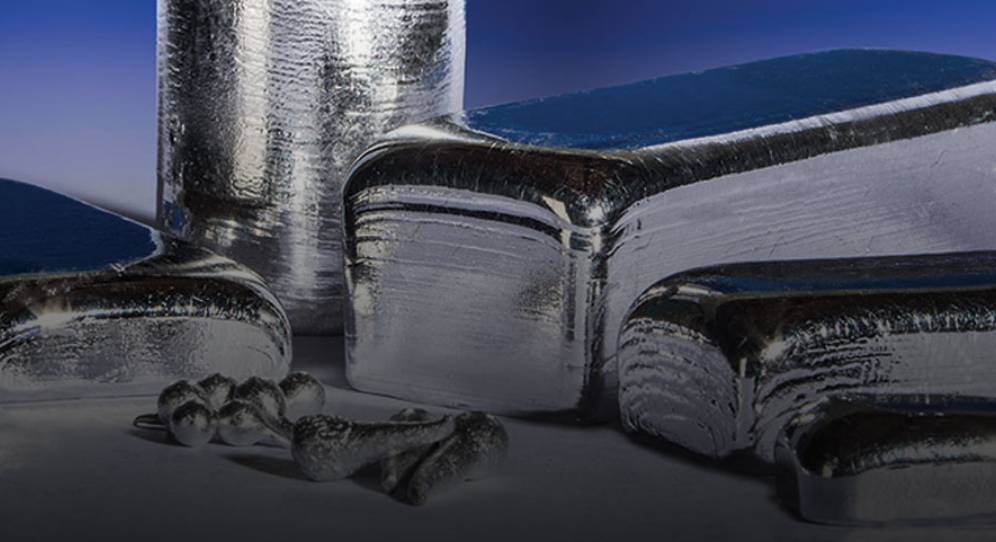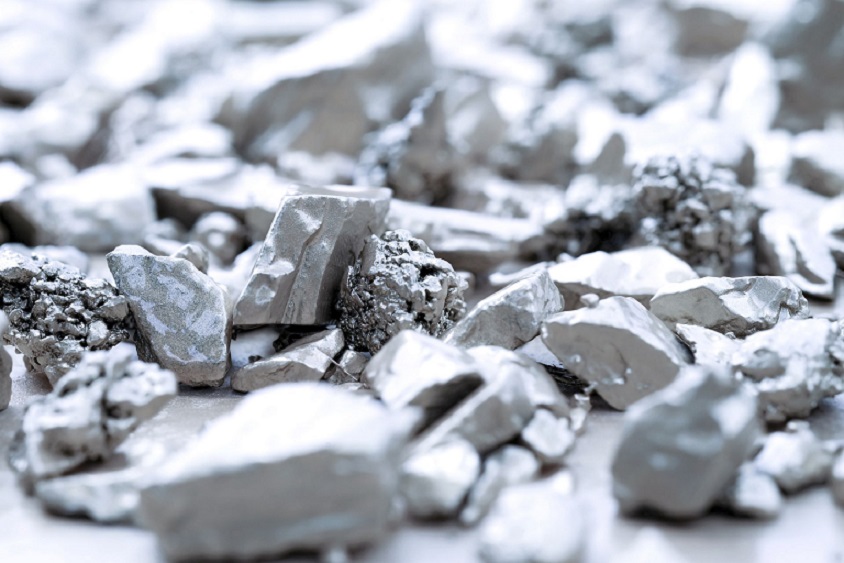
Indium is a rare metal, and its distribution in the earth’s crust is relatively small and scattered. It has a slightly bluish luster, a very soft texture, strong plasticity, and good ductility, and is widely used in aerospace, radio, and electronics industries, medical, national defense, high-tech, energy, and other fields. In addition to beryllium and several refractory metals, indium can form different types of indium alloys with almost all elements in the periodic table.

Indium Alloys
Indium alloy is generally divided into binary alloys, ternary alloys, and multi-component alloys.
Generally, the melting temperature of indium alloy mainly composed of indium is relatively low, which is mainly used as some low melting point alloys or solders.
While some alloys have very little indium content, indium mainly plays a role of modification, such as improving the strength of non-ferrous metal alloys, improving their ductility, abrasion resistance, corrosion resistance, and changing the color of precious metals.
Generally, the indium alloy can be divided into 5 categories, which are bearing alloys, ferromagnetic alloys, memory alloys, decorative alloys, and dental and gemstone alloys. The following is a brief introduction to the 5 types of indium alloy:
Bearing alloys are widely used in the aviation and automotive industries. The bearing alloys mainly used in the manufacture of high-speed engine bearings include silver-lead-indium alloy, lead-cadmium-indium alloy, cadmium-silver-copper-indium, silver-thallium-indium alloy, lead-tin-indium alloy, copper-tin-indium alloy, lead-tin antimony arsenic indium alloy.
Ferromagnetic alloys are also called Heusler alloys. The most widely used ferromagnetic alloy is copper manganese indium alloy (Cu / Mn / In).
Indium thallium alloy (In / Tl) and indium cadmium alloy (In / Cd) are memory alloys, which belong to the new generation of alloys.
The addition of indium to the gold-silver-palladium-copper alloy used for ornaments can improve the hardness and durability of the ornaments and increase the color of the ornaments. The commonly used Au75 / Ag20 / In5 alloy is commonly known as “green gold”.
Indium alloy is also used in dentistry and gemstones. Its composition is usually: gold 5 to 65% / palladium 2 to 30% / silver 10 to 15% / copper 10 to 15% / indium 0.5 to 5%.
Thank you for reading our article and we hope it can help you have a better understanding of the types of indium alloys. If you want to know more about indium metal, you can pay a visit to Advanced Refractory Metals (ARM) for more information.
Headquartered in Lake Forest, California, USA, ARM is a leading manufacturer and supplier of refractory metal products around the world. We provide our customers with high-quality refractory metal products such as tungsten, molybdenum, tantalum, rhenium, titanium, zirconium, etc. at a very competitive price.
Copyright © 1994-2024 Advanced Refractory Metals owned by Oceania International LLC, All Rights Reserved.